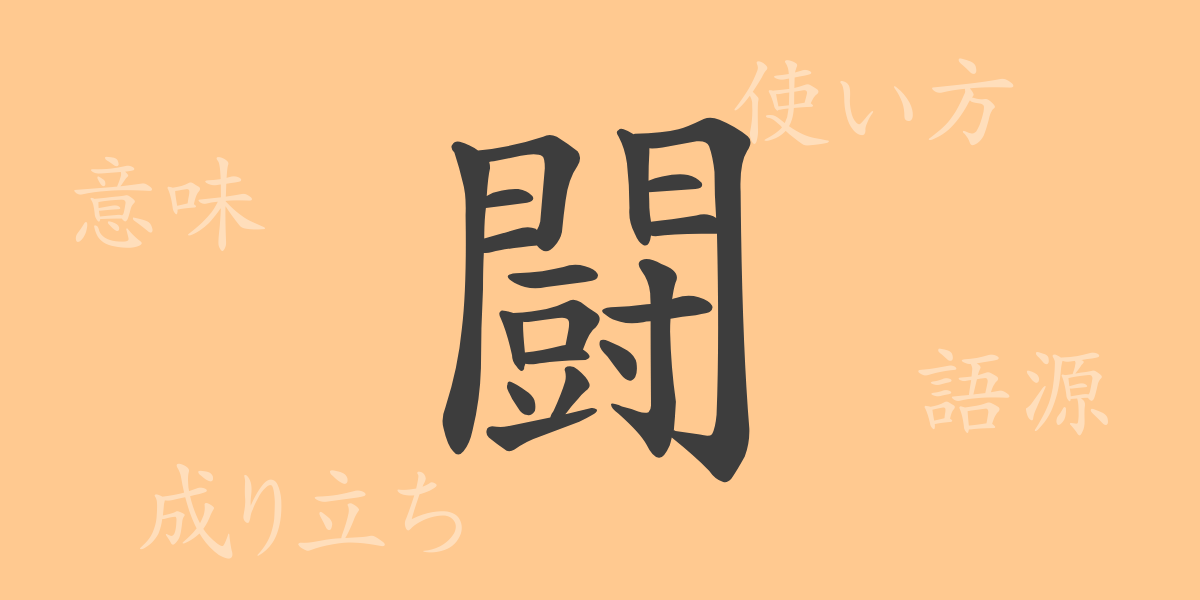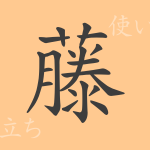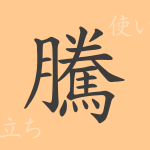In Japanese culture and language, Kanji extends beyond mere characters to embody deep meanings and histories. This article focuses on the Kanji ‘闘 (とう)’, exploring its origins and contemporary usage. We will delve into the power of the character, particularly how the act of ‘fighting’ is embedded in our daily lives and language.
Origins of ‘闘 (とう)’
The Kanji ‘闘’ originated in ancient China, used to denote fighting and competition. This character combines symbols of weapons and fighting actions. Initially, it depicted warriors fighting on a chariot. Over time, the form evolved into the current ‘闘’, still rich with its original meanings of battle and strife.
Meaning and Usage of ‘闘 (とう)’
The character ‘闘’ signifies physical and metaphorical battles, including spiritual and internal conflicts. It’s frequently used in contexts like sports, gaming, and business, embodying the spirit of competition.
Reading, Stroke Count, and Radical of ‘闘 (とう)’
The Kanji ‘闘’ holds intriguing features in terms of pronunciation, structure, and composition:
- Reading: On’yomi ‘トウ’; there are no Kun’yomi readings.
- Stroke Count: A total of 18 strokes.
- Radical: The radical is ‘門 (もん)’, associated with Kanji depicting gates.
Phrases, Idioms, and Proverbs Using ‘闘 (とう)’
There are numerous phrases and idioms incorporating ‘闘’, each reflecting aspects of Japanese linguistic richness:
- 闘志 (とうし) – Represents the will or courage to fight.
- 闘病 (とうびょう) – Refers to battling an illness, often involving prolonged treatment.
- 闘争心 (とうそうしん) – Denotes a competitive spirit or a strong will to win.
- 血闘 (けっとう) – Literally means a bloody and fierce fight.
- 勝負を闘う (しょうぶをとう) – Describes striving for victory in sports or matches, putting forth one’s best effort.
Conclusion on ‘闘 (とう)’
The Kanji ‘闘’ symbolizes the importance of struggle and competition in human life, from ancient times to the present. Whether fighting external foes, illnesses, or internal battles, the character ‘闘’ reflects our past, present, and future struggles. The power of words, sometimes inspiring and sometimes evoking deep empathy, is evident through ‘闘’. Its strength and the expressions it forms narrate the richness of our culture.

























